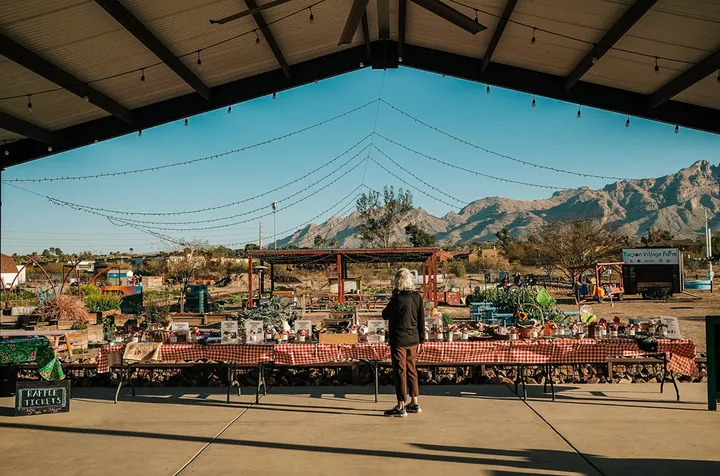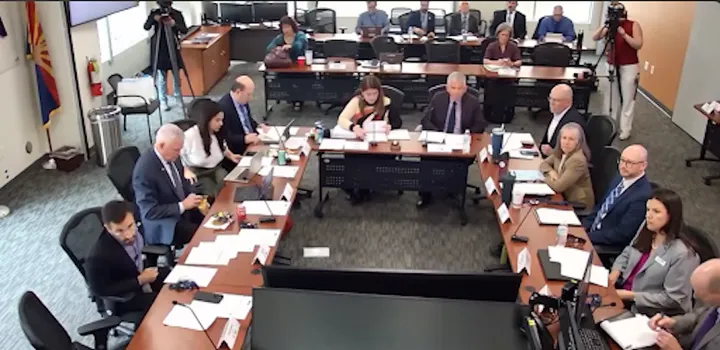Southern Arizona’s first trauma recovery center opens in Tucson
Southern Arizona’s first Trauma Recovery Center has opened in Tucson, providing free counseling, therapy, and case management to help survivors of violent crime heal and rebuild their lives.

Southern Arizona’s first-ever trauma recovery center is now open in Tucson, offering free, comprehensive services to survivors and providing a path toward healing in a community where violent crime rates remain above state and national averages.
CODAC’s Trauma Recovery Center is one of just 55 in the United States. It provides counseling, therapy, and treatment, with each patient paired with a case manager to help address additional needs, including food, housing, and employment.
“The TRC is more than services. It's about people,” said Director Heather Brady. “It's easy to get caught up in the administrative elements of a new program, but the core of what we do is about hope. It's about making sure people who feel isolated, hurt and afraid know that they are not alone.”
The center serves individuals from all backgrounds who are not currently receiving mental health services and face challenges such as homelessness, chronic mental illness, or substance use. TRC staff go out into the community weekly to connect with people who may benefit from their services, rather than waiting for referrals, taking proactive community action.
All services are provided free of charge with no insurance required, thanks to funding through House Bill 2612, which passed in 2023 and provided an initial grant for the pilot program through June of next year.
“These are not just numbers. They represent lives shattered, families grieving and communities experiencing the devastating ripple effects of trauma,” said CODAC President and CEO Dennis Regnier.
The center is available through referrals by staff or community partners, with walk-ins also welcome. Prospective patients complete a thorough assessment with a therapist or psychologist, and together they create a plan with goals tailored to their needs.

Participants spend 16 to 32 weeks in the program, which includes therapy, case management, and other services. Once survivors achieve stability and complete the program, CODAC continues to support their transition to ongoing mental health care if desired.
“We do everything that we possibly can to reengage them because we don't want people to fall through the cracks,” said TRC Outreach and Engagement Specialist Carla Vargas-Frank. “We want to make sure that as long as there is a desire to be engaged, that they have that opportunity.”
The center offers a full spectrum of support; even clients who are incarcerated can continue receiving therapy in jail, ensuring continuity of care without the risk of revictimization.
For people who are unable to travel, the center can arrange visits closer to home or in-home sessions, if deemed safe.
Survivors who have worked with trauma recovery centers report a more than 40% decrease in symptoms of depression and post-traumatic stress disorder, according to a study by the University of California, San Francisco.
CODAC Chief Operating Officer Kristine Welter Hall said during last week’s ribbon-cutting ceremony that this is just the beginning of a broader movement toward trauma-informed care across all systems.
“We envision a future where healing is accessible, stigma is dismantled, and every person feels seen, heard and supported,” Hall said.

Pima County has some of the highest violent crime rates in Arizona, according to U.S. News & World Report. For those impacted, the consequences extend beyond physical injuries. Survivors often face long-term emotional trauma, unstable housing, financial strain, and unemployment. Advocates say that many never seek help because of cost, stigma, or lack of awareness.
Pima County Attorney Laura Conover highlighted the ongoing challenges for many survivors, noting that while violent crime rates have decreased since the pandemic, domestic violence rates remain high.
“When a file opens at the Pima County Attorney's Office, harm has already occurred. One of our worst fears is that the victim might be traumatized again or revictimized again,” Conover said. “The work here is data-driven and solution-oriented, and we are disrupting that cycle.”
The center has already become a lifeline for 18-year-old Brynn, who was the victim of multiple violent crimes and struggling with heavy trauma. Traditional mental health programs weren’t working, and she was dealing with panic attacks, insomnia, and loss of motivation.
“When my dad found the CODAC Trauma Recovery Center, that's when things started to change,” Brynn said during last week’s ribbon-cutting ceremony. “I began therapy, I learned how to manage my panic attacks, I found ways to sleep better.”
Brynn said she learned at the center how to ground herself, working with a therapist to process her trauma at her own pace.
“I discovered that it's okay and safe to talk to someone about my mental health. I learned that being vulnerable isn't a weakness; it's a strength,” Brynn said. “I'm reclaiming who I am. What happened doesn't define me.”
Hall and others at CODAC believe the center will not only help reduce the effects of violent crime but also strengthen the community as a whole.
“I want others to know that you are not alone and your voice matters,” Brynn said. “This is what this place is all about: a place where people are seen, heard and supported. Where healing is possible.”
Angelina Maynes is a University of Arizona alum and reporter with Tucson Spotlight. Contact her at angelinamaynes@arizona.edu.
Tucson Spotlight is a community-based newsroom that provides paid opportunities for students and rising journalists in Southern Arizona. Please consider supporting our work with a tax-deductible donation.



